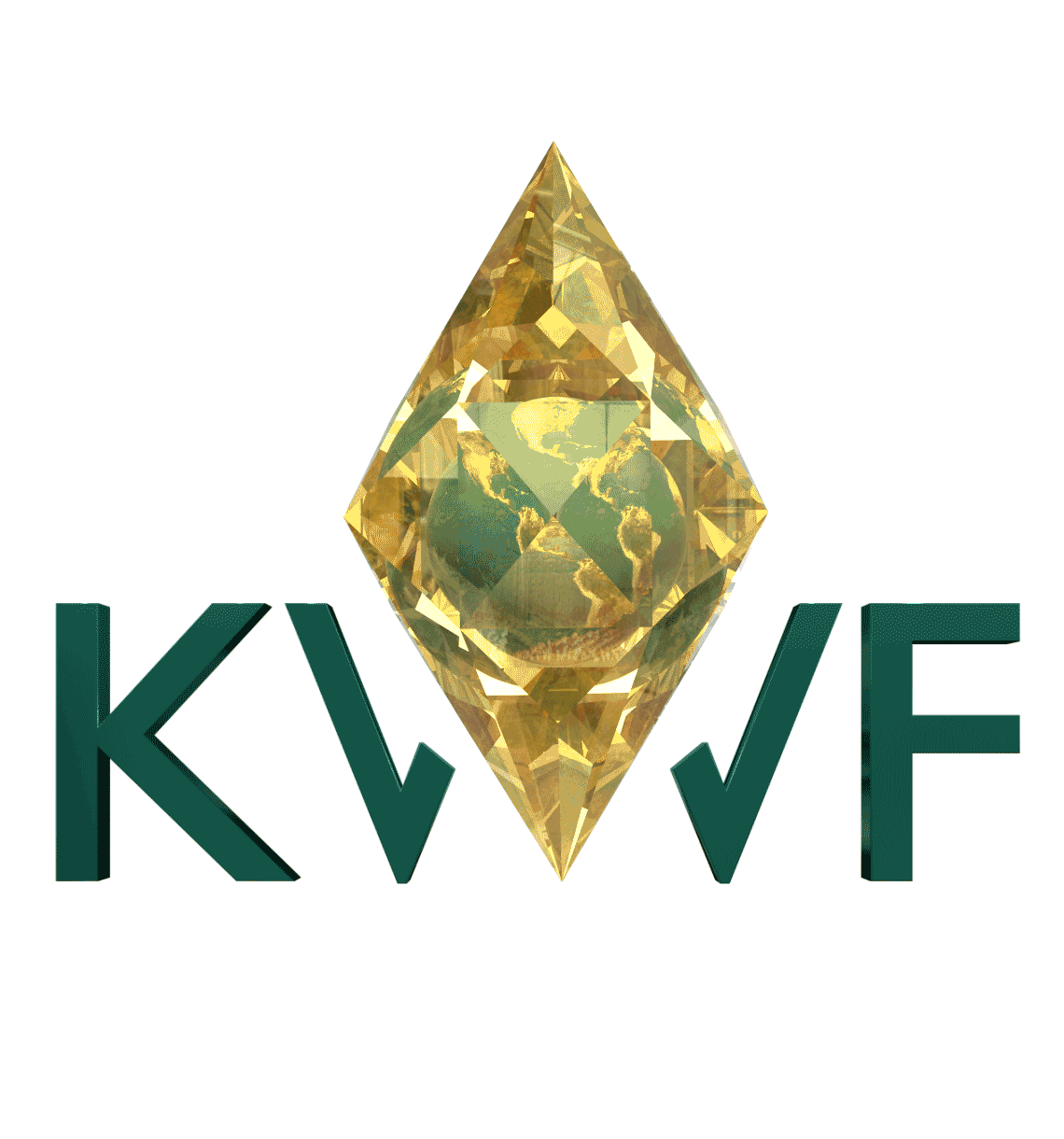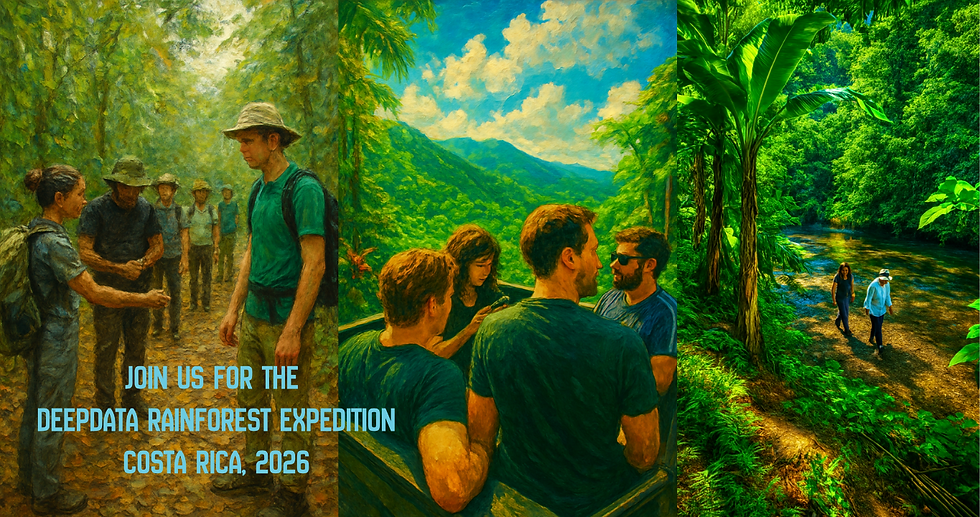Transforming Wildlife Protection with Leadership, BioAcoustics, and Cutting-Edge Technology
- Sarah R. Hunt
- Nov 15, 2024
- 4 min read
Updated: Apr 9, 2025

In the nonprofit sector, success often hinges on adapting, innovating, and strategically planning for the future. The stakes are incredibly high for organizations like Kashmir World Foundation (KwF), a global wildlife conservation leader using advanced technologies like artificial intelligence (AI) and autonomous robotic systems to protect endangered species. As KwF’s efforts to safeguard wildlife scale to new heights, the organization faces increasingly complex challenges that demand visionary leadership and comprehensive strategic planning.
A key partner in KwF’s journey to achieving their next level of impact is Jimmy Malik, an Austin-based leadership coach and founder of JMC^2. With over 15 years of experience in strategic planning, operational efficiency, and leadership development, Malik has been instrumental in helping KwF refine its initiatives and align its visionary leadership to tackle the most complex conservation challenges. His coaching focuses on fostering a clear vision, aligning operations, and building resilience—crucial elements for any nonprofit aiming to maximize its impact and achieve long-term success.
Streamlining Strategy Across KwF’s Expanding Initiatives
KwF is leading multiple ambitious projects, including integrating bioacoustic technology to prevent poaching, and leveraging AI for wildlife monitoring. These technologies, while groundbreaking, require a high degree of coordination, innovation, and strategic alignment. To ensure that all of KwF’s diverse initiatives—such as Kashmir Academy, Kashmir Robotics, and Kashmir Rose—stay aligned with the organization’s mission, Jimmy Malik works closely with the leadership team to streamline operations and sharpen their focus.
Sarah Hunt, KwF’s Director of International Relations, reflects that "Jimmy’s coaching has allowed us to hone in on what truly matters. He’s helped us refine our strategy, prioritize the right projects, and focus our resources effectively. His insights have been invaluable as we scale our efforts and tackle some of the toughest challenges in wildlife conservation."
Bioacoustics Driving the Future of Poaching Prevention

KwF’s most exciting new initiative is the development of a Universal Translator for Sentinel Species (UTSS), a pioneering project that uses AI-powered bioacoustic technology to decode the natural sounds sentinel species make—animals that act as early warning systems for their ecosystems. The technology can detect environmental changes or potential threats, such as poaching activity, by analyzing these sounds in real-time. This innovative system will enable local community law enforcement to respond more quickly and effectively, using nature’s own communications to protect endangered species and their habitats. As KwF continues to push the boundaries of conservation technology, this project represents a major step forward in creating more proactive, anticipatory solutions for wildlife protection.
Dr. Ronald Pandolfi, KwF’s Chief Technology Officer, explains that “by combining natural language processing with sound recognition, we don’t just detect noises—we interpret their meaning. This allows us to understand what animals are signaling about their environment, enabling us to identify threats like poaching in real-time and respond with greater precision and urgency."
Transforming Conservation from Robotics to Sentinel Ecosystems
KwF’s leadership is not just about adopting the latest technologies—it’s also about evolving how technology and nature can work together.
Princess Aliyah Pandolfi, KwF’s visionary leader, shares her vision for the future: "I’ve worked extensively with autonomous robotic systems, but now I want to shift toward creating sentinel ecosystems—working with animals as the guardians of their habitats. It’s about moving from technology-driven solutions to a model where nature itself plays a central role in its protection. We aim to empower native species to defend their homes with technology as a complementary force. To realize this future, we need to develop forward-thinking leaders equipped to lead these transformative changes."
This shift toward sentinel ecosystems represents a groundbreaking approach that blends innovation with nature, using wildlife and advanced technologies to protect biodiversity.
Empowering Leaders with a Leadership in the Wild Challenge
To achieve its vision, KwF recognizes the need to cultivate strong, strategic leaders who can navigate the complexities of global challenges. That’s why they’ve partnered with Jimmy Malik to offer the Leadership in the Wild Challenge during the Rainforest DeepData Expedition (March 17–22, 2025). This immersive experience is designed for individuals from all fields eager to strengthen their leadership skills while contributing to cutting-edge conservation efforts.
Participants will engage in hands-on activities, including biodiversity surveys, ecological monitoring, and bioacoustic data collection while receiving personalized leadership coaching from Jimmy Malik. The challenge focuses on developing critical leadership qualities such as adaptability, resilience, and collaborative problem-solving—skills essential for tackling the complex, high-stakes challenges of our time.
Princess Aliyah Pandolfi underscores the importance of developing leaders for the future:"As we scale our efforts, we must cultivate the next generation of leaders capable of managing technology and nature in tandem. The Leadership in the Wild Challenge will help prepare individuals to lead in this new era of conservation, where technological innovation and natural ecosystems work hand in hand."
Why Today’s Leaders Must Adapt, Evolve, and Lead with Impact
KwF is not just advancing wildlife conservation; it’s leading a paradigm shift in how technology and leadership intersect to safeguard endangered species and ecosystems. But even with the best tools, success ultimately depends on effective leadership. Through Jimmy Malik’s coaching, KwF is refining its strategies, aligning its leadership team, and preparing for future conservation challenges.
Jimmy Malik explains, “the Leadership in the Wild Challenge is about developing leadership in one of the world’s most extraordinary and challenging environments. In the Osa Peninsula, the most biologically intense place on earth, participants will build the resilience and adaptability needed to lead in high-stakes situations. Immersed in a setting where cutting-edge technologies are shaping the future of conservation, they’ll leave not just as better leaders in their respective fields, but also as agents of change in the fight to protect our planet’s most endangered species and ecosystems."
Dates and Location:
Dates: March 17–22, 2025
Location: Osa Peninsula, Costa Rica (Basecamp: Tamandua Biological Station)
Hosts: Kashmir World Foundation and Tamandua Biological Station
Ready to take your leadership to the next level? Apply now and join us on a transformative journey. Learn more and secure your spot at www.jimmymalik.com.





Comments